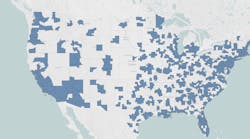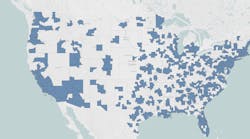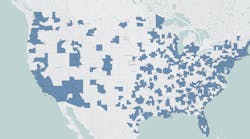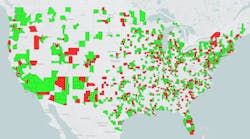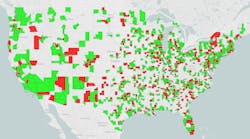Building permits see dip in December. Privately-owned housing units authorized by building permits in December were at a seasonally adjusted annual rate of 1,416,000, -3.9% below the revised November rate of 1,474,000, but +5.8% above the December 2018 rate of 1,339,000. Single-family authorizations in December were at a rate of 916,000, - 0.5% below the revised November figure of 921,000. Authorizations of units in buildings with five units or more were at a rate of 458,000 in December. An estimated 1,368,800 housing units were authorized by building permits in 2019, +3.9% above the 2018 figure of 1,317,900.
PMI slides in December. The December Purchasing Managers Index (PMI) registered 47.2%, a decrease of -0.9 percentage points from the November reading of 48.1%. This is the Purchasing Managers Index’s lowest reading since June 2009, when it registered 46.3%. Published monthly by the Institute for Supply Management, Tempe, AZ, the PMI is a monthly survey of industrial purchasing managers. Any reading below 50% points toward contraction in the industrial purchasing environment.
Architecture Billings Index hits a high note in December. The American Institute of Architects (AIA), Washington, D.C., says demand for design services in December increased for the third month in a row, according to its Architecture Billings Index (ABI). The ABI score of 52.5 points for December reflects an increase in design services provided by U.S. architecture firms (any score above 50 indicates an increase in billings). During December, both the new project inquiries and design contracts scores were positive, posting scores of 58.7 and 53.4 respectively.
“Despite the ongoing slowdown in billings in the Northeast, balanced growth across sectors and regions looks more positive for the coming year,” said AIA Chief Economist, Kermit Baker. “Factors outside of the construction sector, such as trade policy and international events, could still impact demand for design services, however recent fears about a downturn in construction activity have largely subsided.”

